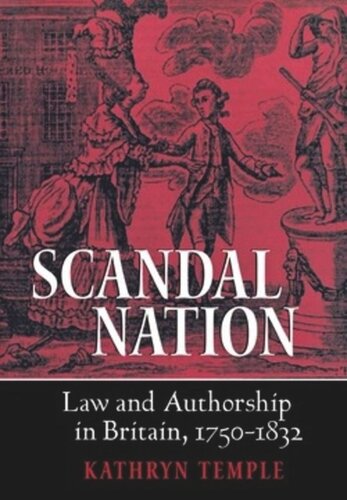

Most ebook files are in PDF format, so you can easily read them using various software such as Foxit Reader or directly on the Google Chrome browser.
Some ebook files are released by publishers in other formats such as .awz, .mobi, .epub, .fb2, etc. You may need to install specific software to read these formats on mobile/PC, such as Calibre.
Please read the tutorial at this link: https://ebookbell.com/faq
We offer FREE conversion to the popular formats you request; however, this may take some time. Therefore, right after payment, please email us, and we will try to provide the service as quickly as possible.
For some exceptional file formats or broken links (if any), please refrain from opening any disputes. Instead, email us first, and we will try to assist within a maximum of 6 hours.
EbookBell Team

4.3
58 reviewsKathryn Temple argues that eighteenth-century Grub Street scandals involving print piracy, forgery, and copyright violation played a crucial role in the formation of British identity. Britain's expanding print culture demanded new ways of thinking about business and art. In this environment, print scandals functioned as sites where national identity could be contested even as it was being formed.Temple draws upon cases involving Samuel Richardson, Samuel Johnson, Catharine Macaulay, and Mary Prince. The public uproar around these controversies crossed class, gender, and regional boundaries, reaching the Celtic periphery and the colonies. Both print and spectacle, both high and low, these scandals raised important points of law, but also drew on images of criminality and sexuality made familiar in the theater, satirical prints, broadsides, even in wax museums. Like print culture itself, the "scandal" of print disputes constituted the nation—and resistance to its formation. Print transgression destabilized both the print industry and efforts to form national identity. Temple concludes that these scandals represent print's escape from Britain's strenuous efforts to enlist it in the service of nation.